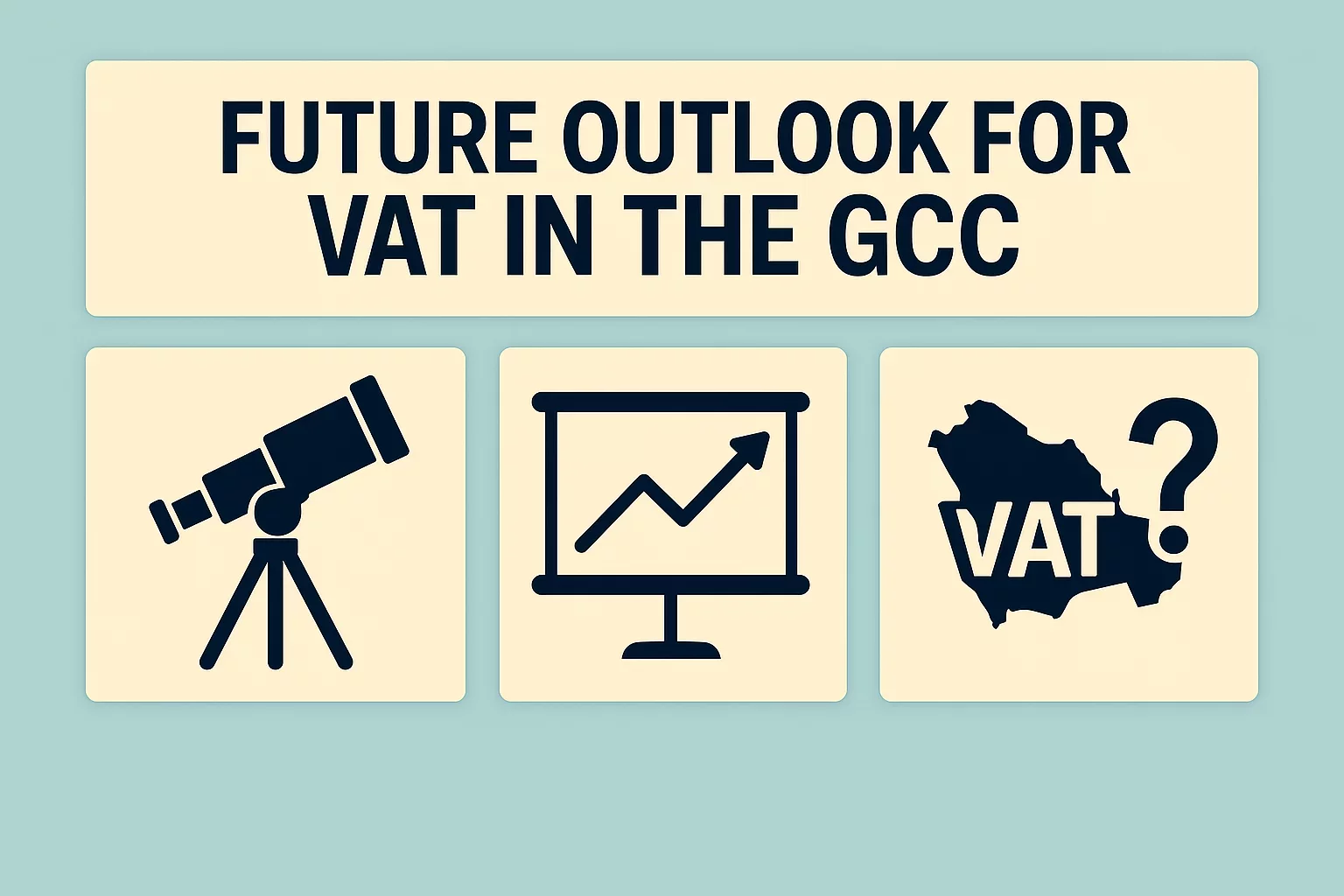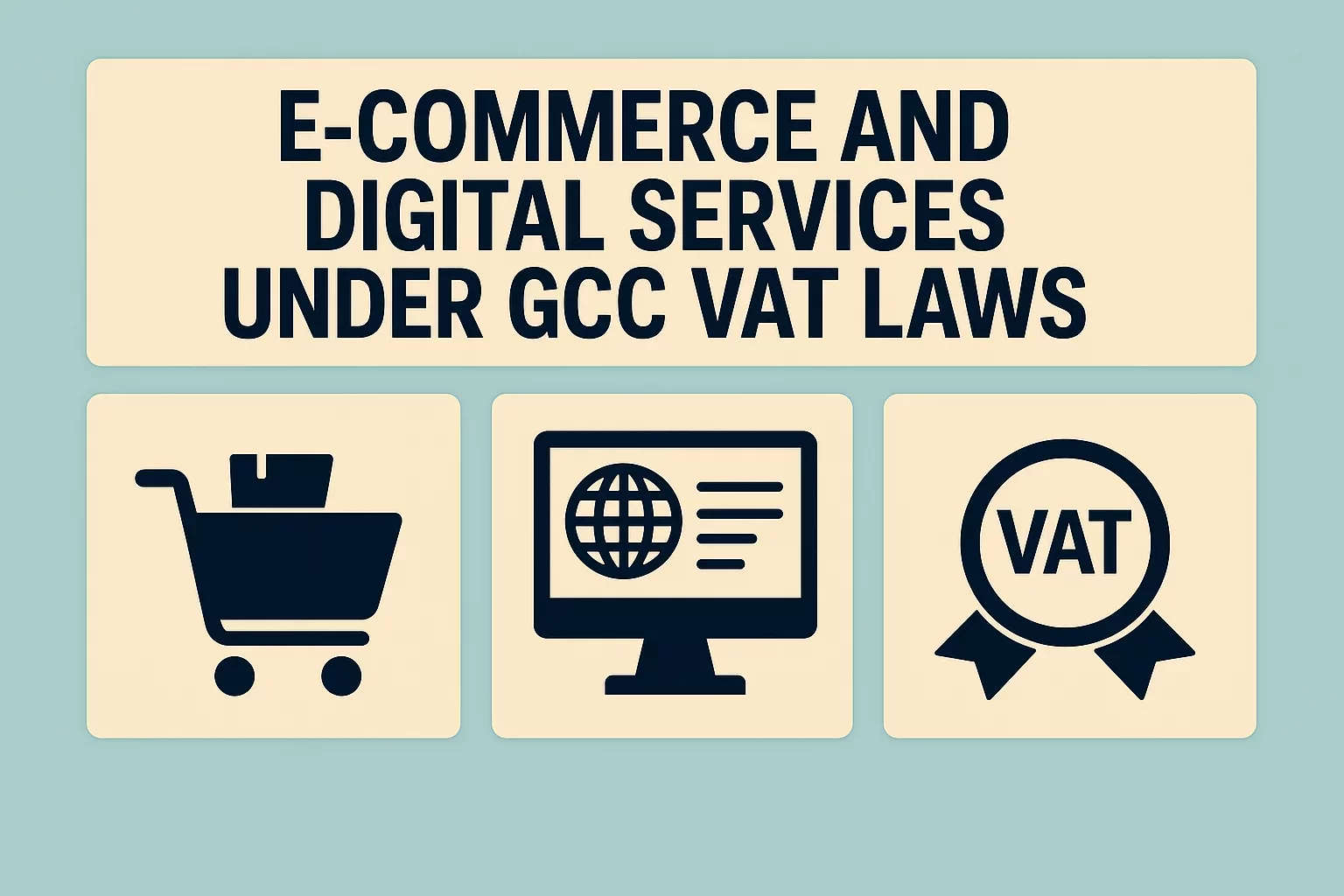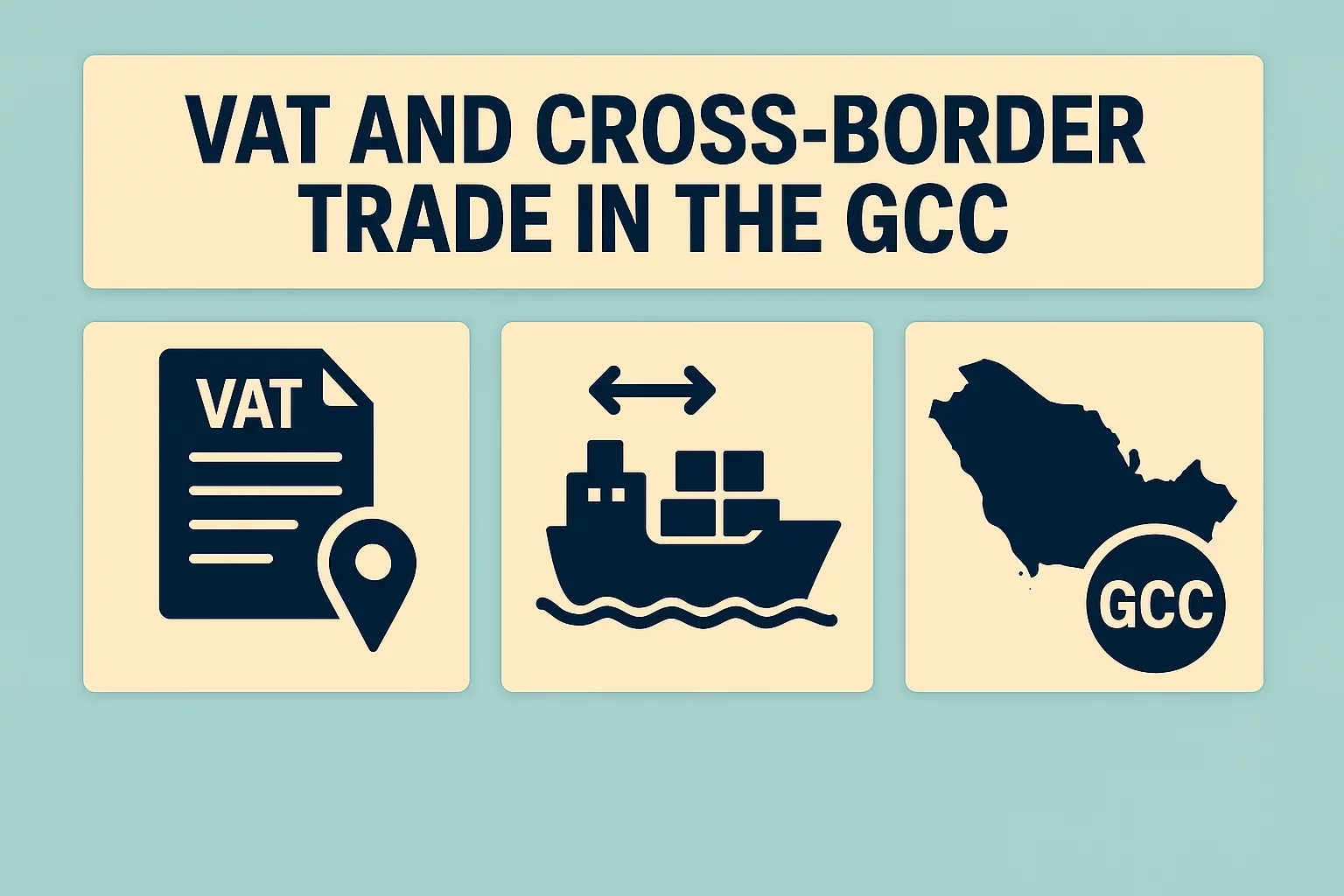E-commerce and Digital Services under GCC VAT Laws
See how GCC VAT laws affect e‑commerce and digital services, including registration, tax rules, and cross‑border digital sales.
E-commerce and digital services have become one of the primary drivers of economic growth and the main channels for consumer and business spending. Recognizing the need for cooperation and the establishment of a common framework, Gulf countries started working on a unified VAT agreement in 2017.
The outcome is that the common VAT system in the United Arab Emirates (UAE), Saudi Arabia (KSA), Bahrain, and Oman has resulted in VAT systems that apply squarely to online sales and electronically supplied services, with Qatar and Kuwait yet to implement VAT.
To ensure the correct application of tax and avoid costly penalties, including potential imprisonment, cross-border sellers and platform operators must understand the current VAT landscape and how the GCC VAT Agreement is translated into domestic rules.
Scope of E-commerce and Digital Services Under GCC VAT Agreement
The GCC VAT Agreement does not explicitly define applicable VAT rules for e-commerce and digital services. However, it sets the baseline by defining that VAT is due on supplies of goods and services at each stage of production and distribution, including deemed supplies.
Taxability rules for e-commerce transactions depend on several factors, including the identity of the buyer, the location of the goods at the time of sale, the role of e-commerce platforms, and whether the platform is acting as a disclosed or undisclosed agent.
The main difference between disclosed and undisclosed agents is that a disclosed agent acts in the name of and on behalf of the supplier, whereas an undisclosed agent supplies goods or services in their name but still on behalf of a principal. From the VAT perspective, the undisclosed agent is treated as making a direct supply to the customer, and the difference between what the agent charges the customer and what is paid to the supplier represents the agent’s profit.
Generally, the supplier is responsible for collecting and remitting VAT. Therefore, determining who the supplier is becomes more complex when multiple parties are involved in a transaction and are from different countries.
GCC VAT Requirements for E-commerce Businesses
Each GCC country retains the authority to issue its detailed conditions and practical rules for applying deemed supply provisions, which means the specifics may vary across jurisdictions. However, there are some general rules. If the supplier and online marketplace digital platform operator are local, the place of supply is where the goods are at the time of supply. The goods are typically taxed at the standard VAT rate, and the supplier is responsible for collecting and remitting the VAT. I
If the supplier is local but the online marketplace or digital platform operator is foreign, the place of supply is where the goods are at the time of supply. Persons liable for VAT may include local suppliers, importers, or online platform operators acting as undisclosed agents. Notably, the online platform operator must register for VAT in the country where the supply is made.
In a situation where the supplier is foreign and the online marketplace or platform operator is local, the foreign supplier must register for, collect, and remit VAT if the goods are supplied to local customers. However, the exemption is provided if the local online platform operator is acting as an undisclosed agent.
Finally, if both the supplier and the online marketplace or platform operator are foreign, the foreign supplier must register and account for VAT if the goods are supplied locally, unless the foreign online operator is acting as an undisclosed agent. Should that be the case, a foreign online operator acting as an undisclosed agent must register for VAT and charge VAT on the supply.
GCC VAT Rules for Foreign Digital Services Providers
For electronically supplied services (ESS), such as streaming, downloads, apps, web hosting, and similar services, the GCC VAT Agreement provides special place-of-supply rules to ensure that tax is collected where consumption occurs and identifies the recipient.
GCC countries that implemented VAT rules also introduced variations of these rules. Still, the unifying idea is that ESS consumed by a customer in a GCC country is taxable in that country. This consumer-based or consumer-centered location focus is significant for non-resident or foreign providers selling to local consumers.
The general rules state that if the service provider is foreign and the online digital platform operator is local, the place of supply is the place where the service is used or enjoyed. In such cases, the person liable for VAT for B2C transactions is the foreign service provider, whereas for B2B transactions, the recipient is liable for VAT through the reverse charge mechanism.
If both the service provider and online digital platform operator are foreign, the same rules for determining the place of supply apply. In those cases, for B2C supply, the foreign service provider or online platform operator acting as an undisclosed agent is liable for VAT. Regarding B2B supply, it is taxed where the recipient is registered for VAT purposes in the country where the recipient is located.
National E-Commerce and Digital Services VAT Rules
In the UAE, e-commerce sales are taxable at the standard 5% VAT rate when the place of supply is the UAE. The UAE Federal Tax Authority issued the E-commerce VAT Guide and introduced an e-commerce reporting requirement to disclose certain supplies delivered through electronic means in the VAT return, improving audit visibility for online transactions.
Regarding the ESS, the UAE VAT rules impose a 5% VAT on the supply and updating of software, as well as the supply of images, text, and information provided electronically, such as photos, screensavers, music, films, and games on demand, online magazines, streaming, and many other services.
Saudi Arabia’s guidance emphasizes the “actual use and enjoyment” of digital services as the basis for taxation. Additionally, the standard 15% VAT rate applies when the consumer resides or uses the service in the state. Furthermore, Saudi Arabia explicitly requires non-resident providers of ESS to register for VAT from the first B2C supply.
In Oman, non-resident suppliers are required to register for VAT when they make supplies of goods or ESS to a consumer located in the state, regardless of the value of the supplies made. The supply of goods and ESS are taxed at the standard 5% VAT rate.
The VAT rules for online marketplace and digital platform operators in Bahrain are explained in the VAT guidance on the Digital Economy, released by the Tax Authority. The cross-border supply of goods and ESS is subject to the standard VAT rate of 10%.
In the context of digital platforms, Bahrain’s VAT guidance presumes that a platform acts as an undisclosed agent for a non-resident supplier unless specific conditions are met. These conditions include identifying the non-resident as the supplier in the contract and on the invoice or receipt, or situations where the platform cannot charge the customer directly or influence the terms and conditions of the supply.
Conclusion
Although the national VAT rules for e-commerce and digital service providers originate from the GCC VAT Agreement and share many similarities, there are notable differences in applicable VAT rules and requirements for taxable persons.
From different VAT rates to varying definitions of the ESS, e-commerce businesses, platform operators, and digital service providers must understand local rules, as applying a uniform approach across the GCC could lead to non-compliance and potential penalties.
Frequently Asked Questions
Taxability rules depend on factors such as the buyer’s identity, whether they are a taxable or non-taxable person, the location of goods at the time of sale, the role of e-commerce platforms, and whether platforms act as disclosed or undisclosed agents.
A disclosed agent acts in the name of and on behalf of the supplier, while an undisclosed agent supplies in their own name but on behalf of a principal, making a direct supply to the customer, with the profit being the difference between what is charged to the customer and paid to the supplier.
ESS, such as streaming, downloads, apps, and web hosting, are taxable in the country where the service is used or enjoyed, irrespective of the supplier’s location. While the supplier is liable for B2C transactions, a reverse charge mechanism applies to B2B transactions.
While the GCC VAT framework provides a common foundation, differences in VAT rates, definitions of electronically supplied services, and compliance requirements mean that a uniform approach risks non-compliance and potential penalties.
Source: PwC, UAE Federal Tax Authority, Common VAT Agreement of the States of the Gulf Cooperation Council (GCC), Grant Thornton, General Authority of Zakat and Tax, Oman Tax Authority - VAT Guidelines for E-commerce, Bahrain National Bureau of Revenue


